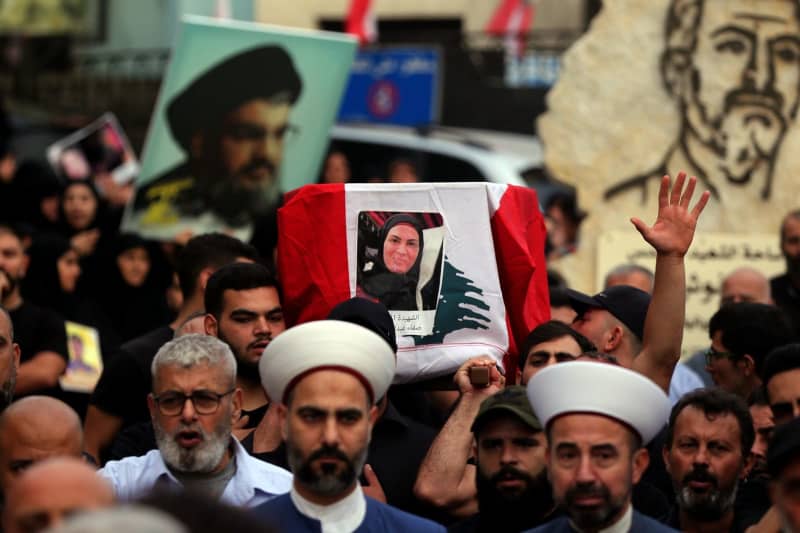On Monday, Prime Minister Benjamin Netanyahu declared that Israel would persist in its military operations against Hezbollah in Lebanon “without mercy.” This statement followed a deadly drone attack by the Iran-backed militant group near an Israeli base, resulting in the deaths of four Israeli soldiers and wounding over 60. In a visit to the Golani Brigade Training Base, which was targeted by the Hezbollah drone, Netanyahu emphasized the continuation of strikes throughout Lebanon, overtly including Beirut for the first time in communications related to military strategy. Previously, it had been reported that Israeli forces had refrained from attacking the Lebanese capital at the request of the US government; however, the recent rhetoric from Netanyahu marks a significant escalation in Israel’s military posture.
In retaliation for the drone assault, Israeli airstrikes caused substantial casualties in Lebanon, with reports indicating at least 21 fatalities following a strike on a residence in northern Lebanon, specifically in the village of Aito. This area had become a refuge for families displaced from southern Lebanon, marking the severity of the targeted operations. Lebanese Health Ministry officials reported eight additional injuries, with DNA testing underway to identify the deceased. The airstrike in Aito represents the first Israeli military action in the area during this conflict, further intensifying the already volatile situation between Israel and Hezbollah.
The ongoing hostilities have seen consistent exchanges of cross-border fire, which have escalated since the onset of the Gaza war over a year ago. Regular confrontations have led Israeli ground troops to initiate raids into Lebanon, complemented by substantial airstrikes targeting Hezbollah positions. With tensions at a boiling point, Netanyahu reassured his troops about the necessity of these operations, framing them as essential for Israel’s security while acknowledging the “painful price” that the country has had to pay. He reiterated that despite the challenges, Israel was making significant military achievements that warranted the continuation of its aggressive approach.
Amid these military actions, Israeli forces claimed to have uncovered an underground command center belonging to Hezbollah’s elite Radwan force in southern Lebanon. The facility, situated beneath a civilian area, purportedly housed weaponry and was designed to facilitate operations against Israeli targets, allowing Radwan troops to prepare and then enter Israeli territories undetected. The discovery included various support facilities and indicated the extent of the militant group’s operations in civilian-dominated areas, raising concerns over the safety and security of the local populace amidst the conflict.
The humanitarian impact of the conflict has been grave, as seen in the aftermath of the airstrike in Aito, where not only was a Hezbollah member believed to be targeted, but numerous civilians were also caught in the crossfire. Pictures and reports of devastated buildings, wrecked vehicles, and ravaged communities characterized the conditions on the ground, revealing the harsh reality faced by those in conflict zones. The lethal consequences of military engagements have led to rising local opposition and international concern regarding civilian casualties and the stability of Lebanon’s already precarious situation.
Both Israel and Hezbollah remain locked in a cycle of retaliation, each sustaining substantial military losses while grappling with elevated regional tensions. As Israel intensifies its operations, the risk of further escalation looms large, particularly with Netanyahu’s open threat to escalate strikes significantly across Lebanon. This precarious balance continues to encapsulate the complexity of the Israeli-Hezbollah conflict, posing an enduring challenge for peace and security in the region, with potential repercussions that could extend beyond their immediate borders.

